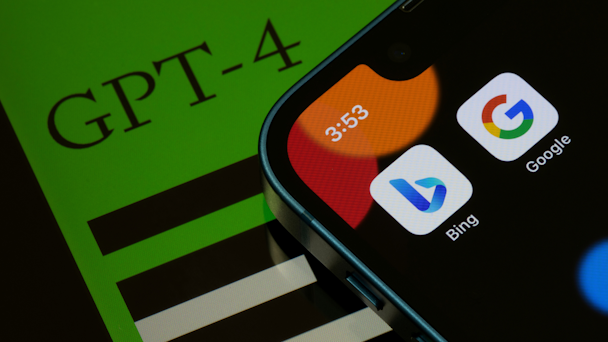AI-powered search and the future of marketing
The new generation of search engines - driven largely by powerful AI models like GPT-4 - could transform the ad industry, writes Skai’s chief product officer Guy Cohen.

Microsoft and Google have been making big investments in new, AI-powered search tools. / Adobe Stock
The rise of e-commerce and growing economic pressures have made it necessary for many brands to rely more heavily on digital advertising. That means that marketers using search today must leverage strategies to become more efficient, boost performance and reduce complexity.
Artificial intelligence (AI) has the potential to revolutionize the advertising industry by delivering more engaging, contextualized and immersive search experiences. This process is likely to speed up as Google and Microsoft continue to invest more heavily in new search tools that are powered by AI chatbots.
Here are four key considerations that marketers should bear in mind about the new generation of AI-powered search engines.
Advertisement
Impacts on customer journey and purchase experience
We’ve all tried searching for something on a search engine that we know must be out there, yet our searches prove fruitless. Most of the time, that can be chalked up to the fact that we’re not using the optimal keywords. Traditional search, in other words, lacks an intuitive, conversational approach.
On the other hand, search engines that are powered increasingly by AI – such as Microsoft's newly revamped Bing, which harnesses OpenAI’s GPT-4 large language model – are able to more easily understand the meaning and context of search queries. For consumers, the ability to search without having to worry about keywords will result in a more rewarding search experience. For brands, the ability to engage with users who may not be keyword-savvy use will prove to be quite valuable – both for organic search and paid search programs.
Generative AI can also enhance the customer journey by providing a more dynamic and personalized experience. For example, when someone searches for a new smartphone, generative AI could analyze their search history to recommend a device that meets their particular needs and taste. This can lead to higher engagement, stronger brand loyalty and more confident purchase decisions.
Advertisement
A new influencer industry?
Brands should also anticipate the rise of virtual influencers powered by AI, which could have a profound impact on customer shopping behavior. Such digital influencers could be linked with the new generation of search engines to provide personalized recommendations and promotions, which in turn could nurture consumer trust. An AI fashion influencer, for example, might offer tailored shopping advice based on a user's style, leading to a more engaging shopping experience.
By leveraging AI influencers, companies could harness the power of influencer marketing, maintain control over messaging and brand alignment, and increase trust and loyalty among their audiences.
Suggested newsletters for you
Boosting ROI
As AI gains traction and reinvents search, it will present new opportunities for monetizing ads within search engines.
Brands can leverage AI to serve fresh, personalized ad content in various formats, including video, images, and text, which can lead to higher engagement and conversions. Furthermore, AI can help optimize ad spend allocation, ensuring marketing budgets are used effectively to target the right audiences at the right time, while also identifying opportunities for savings, adjusting bids and refining targeting strategies. This increased level of precision and efficiency can lead to increased ROI for advertisers.
Education is key
AI presents valuable new opportunities for marketers, but it also introduces new risks.
Popular models like ChatGPT (another OpenAI product), for example, are prone to hallucination, meaning they occasionally behave in unexpected ways that can produce erroneous or biased information. It’s important for marketers to use these tools to educate themselves accordingly; doing so will increase the chances that they gain an edge on the competition in the years ahead as AI continues to improve and spread – both within the online search sector and throughout society at large.
Guy Cohen is chief product officer at Skai. For more on the latest happening in AI, web3 and other cutting-edge technologies, sign up for The Emerging Tech Briefing newsletter here.
